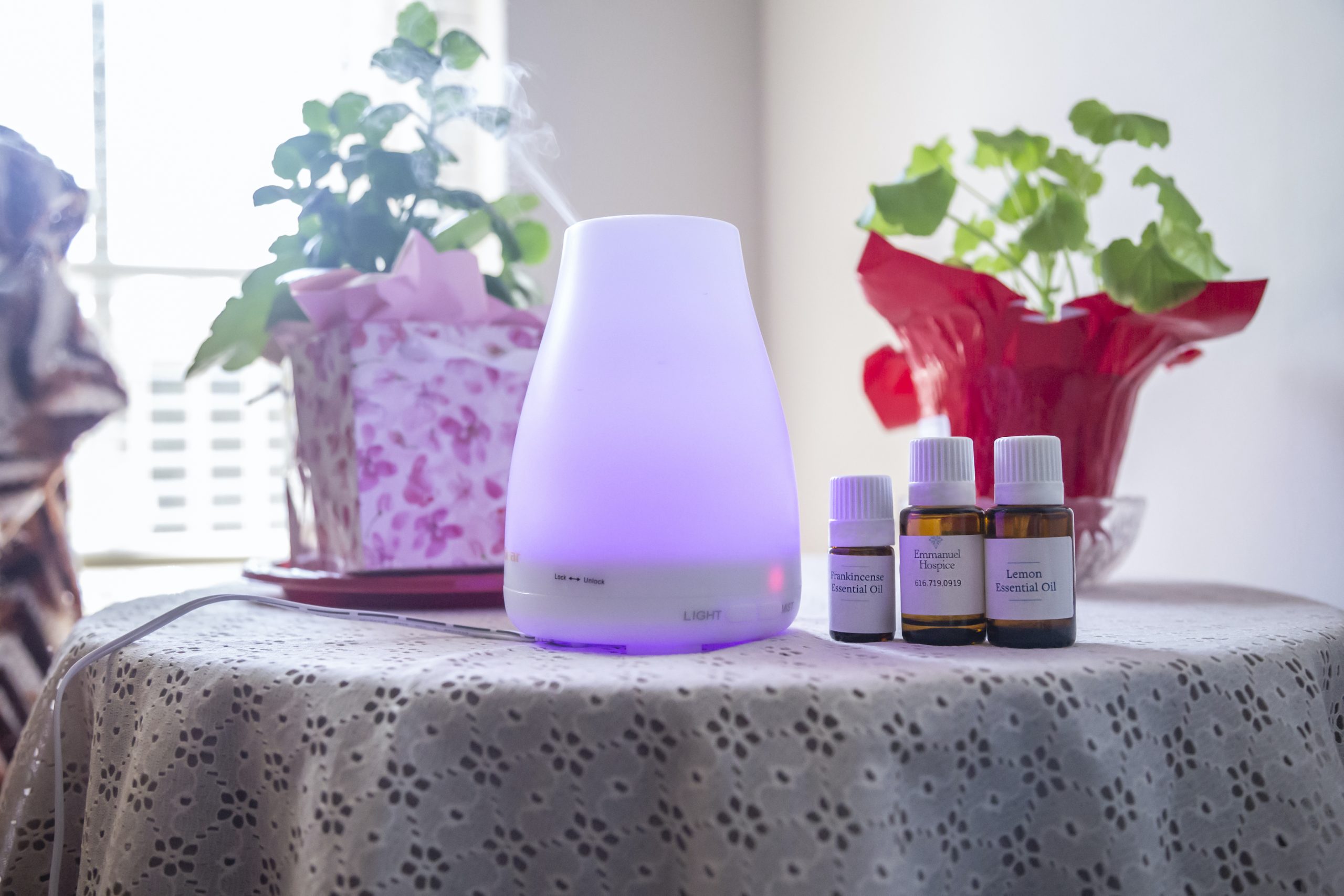How to help combat tension? Maybe lavender.
Wish you could feel a bit more energized? Try lemon.
As for improving congestion and mental focus? Peppermint, perhaps.
In hospice care, these and other essential oils are finding their way into the mainstream as ways to minimize adverse reactions and maximize therapeutic benefits, often in conjunction with other methods of treatment.
At Emmanuel Hospice, essential oils have been part of the care team’s toolkit for upwards of five years now, relying on 100% natural extracts from plants which support the holistic wellbeing of mind, body and spirit.
“We currently utilize four essential oils,” explains Jenny Kellogg, Emmanuel’s support programs manager. “There’s lavender, a light and floral scent, which can ease feelings of tension, and sometimes reduce a person’s anxiety and even help calm them and promote restful sleep.
“Then there’s lemon, a bright and citrusy scent, which can be used for odor control and for uplifting moods, sort of like the opposite of lavender.
“The third is frankincense, an earthy scent with a Biblical tie-in, which can help with emotional balance and spiritual awareness. A patient might be struggling with their diagnosis, and frankincense can offer some respite from those feelings.
“The fourth is peppermint, a cool and refreshing scent, which can help with multiple things. It can clear congestion, improve mental focus and help with nausea and headaches.”
Kellogg stresses that Emmanuel only uses essential oils procured from a reputable supplier, rather than diluted oils you might purchase in some retail stores. In any case, Emmanuel limits their use to only a few drops at a time that are diffused into the air, sprayed onto linens or applied sparingly to a piece of felt that can be pinned to clothing.
The reaction patients have to the oils can vary.
“Like with most things, reactions are different,” Kellogg says. “All oils are unique in their scent and utilization. It offers a person-centered approach to symptom management based on each patient’s preferences and needs.
“A lot of times, people will gravitate toward lavender oil because it helps them sleep, or puts them at ease. And others like lemon oil because it can improve energy and promote an invigorating environment.”
Since essential oils are so potent, they’re used with extreme care. Emmanuel uses protocols about how much to use in a diffuser or the correct amount to spray into the air or introduce to clothing or bedding. It takes 60 pounds of lavender to produce just one ounce of its essential oil. For the same amount of essential lemon oil, 90 lemons are required.
Though there are studies demonstrating health benefits from essential oils, Kellogg says “some patients connect with and believe in oils more than others.”
“This is just another way we offer patient’s choice in their plan of care and ways to improve their quality of life,” she adds.
Overall, they serve as a valid alternative to some medications, and represent “an important tool for us, especially for patients who hesitate to add more medications to their list.”
Essential oils are one of many complementary therapies and services Emmanuel Hospice offers that can be used alongside pharmaceutical approaches or as an alternative to enhance each patient’s life. Others include massage therapy, music therapy, pet visitors and virtual reality, to name a few.
“It’s all about how best to treat the patient and the patient’s family,” Kellogg says. “If essential oils can help, we’ll make them part of the journey.”
For more information about holistic end-of-life care, visit EmmanuelHospice.org or call 616.719.0919.
